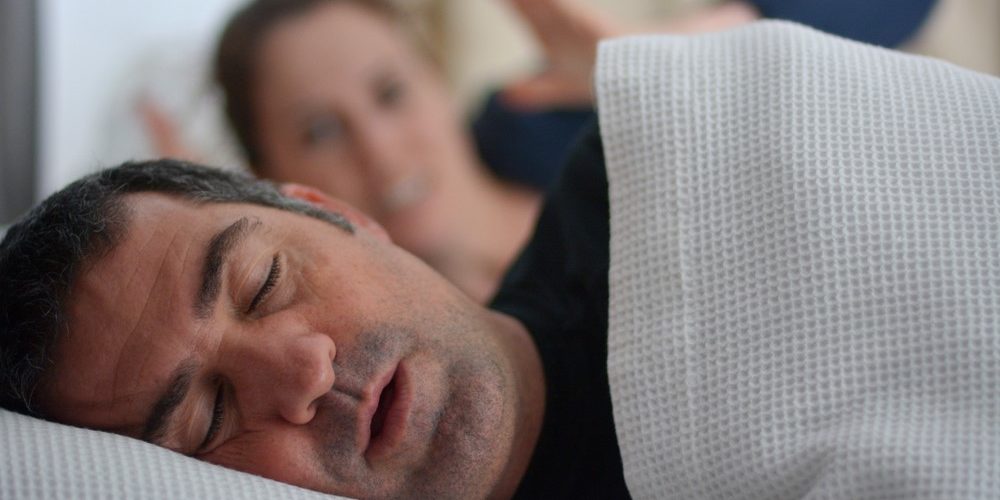 Pretty much everyone snores now and then, but for some, snoring can become a chronic issue. If you regularly snore at night, it can disrupt the quality of your sleep and cause daytime fatigue along with a whole array of other health problems.
Pretty much everyone snores now and then, but for some, snoring can become a chronic issue. If you regularly snore at night, it can disrupt the quality of your sleep and cause daytime fatigue along with a whole array of other health problems.
Here are some basic facts on snoring:
- Snoring occurs when air flows past relaxed tissues in your throat causing the tissues to vibrate as you breathe.
- Approximately 70 percent of snoring is hereditary.
- About five to seven percent of children are habitual snorers and any child who snores should be medically evaluated.
- The average snore can reach between 60 (normal conversational volume) and 90 (power lawnmower) decibels.
- Snoring is a common, treatable condition.
Obstructive sleep apnea (OSA) is sleep disorder which is often associated with snoring, however not all snorers have OSA. OSA is usually characterized by loud snoring followed by periods when breathing either stops, or nearly stops. Eventually this pause in breathing may cause you to awaken with a loud gasp or snort. This disruption to your sleep may occur many times throughout the night. If you or your partner snores and the snoring is accompanied by any of the following symptoms, see a doctor for an OSA evaluation:
- Breathing pauses during sleep
- Excessive daytime sleepiness
- Difficulty concentrating
- Morning headaches
- Sore throat upon awakening
- Restless sleep
- Gasping or choking at night
- High blood pressure
- Chest pain at night
- Excessively loud snoring that it disrupts a partner’s sleep
- In children, poor attention span, behavioral issues or poor performance in school.
Here are some simple ways snoring can be treated or potentially reduced:
- Avoid alcohol or sedative medications which can cause muscles to relax before bed. During sleep the soft tissues in the throat and upper airway and the tongue relax. This can contribute to blocking the airway and cause snoring.
- Try nasal strips or a humidifier to help reduce nasal inflammation and obstruction that lead to snoring.
- Snoring is more common when you sleep on your back because the relaxed tongue is more likely to block your airway. Try sleeping on our side with your head slightly elevated.
- Excessive fat tissue can surround your airway and lead to snoring from obstructed airflow. If you are overweight and are a snorer, try losing some weight to see if your snoring improves or disappears.
- Quit smoking. Tobacco smoke is an irritant that can cause tissue inflammation. Even small amounts of inflammation can restrict airflow and lead to snoring.
- Use a continuous positive airway pressure (CPAP) machine. CPAP delivers pressurized air though a nasal or face mask. If your doctor diagnoses you with moderate to severe OSA, this treatment may be recommended.
Lifestyle changes like losing weight, avoiding drinking alcoholic beverages close to bedtime or sleeping on your side may help reduce or stop snoring. There are also medical devices and surgical procedures that can reduce snoring; however these are not necessary or suitable for everyone. Surgical procedures to alleviate snoring are typically a last resort, for example, a tonsillectomy and/or adenoidectomy to remove enlarged tonsil and adenoids that may obstruct the airway, among several other surgical options.
“Snoring is often a symptom of a bigger issue and treatment for snoring and sleep apnea does not have to be torture. It can be treated easier than in the past. The first step is getting a sleep study,” says Nick Patel, DO, Pulmonologist. If you or your loved one snores, you should consult with a medical professional for help determining the causes of and appropriate treatment for your snoring.

